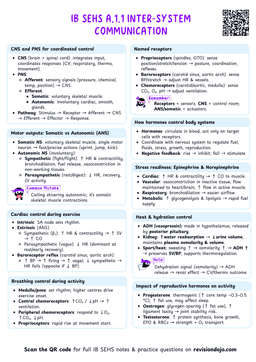Attribution Theory and Its Impact on Confidence
Attribution Theory
Attribution theory examines how people explain their successes and failures, influencing their future expectations and achievement behavior. Heider (1958) originally categorized attributions into four factors: ability, effort, task difficulty, and luck.
- Attribution theory explains how people interpret the causes of their successes and failures.
- These interpretations, or attributions, shape their expectations, emotions, and behaviors.
Attribution theory is a framework that helps us understand how people explain the causes of events, particularly success and failure.
Weiner's Model of Attribution Theory
Three Dimensions of Attribution
1. Locus of Control refers to whether the cause of success or failure is internal (within the athlete) or external (outside their control).
- If an athlete attributes success to internal factors (e.g., “I trained hard”), they are more likely to feel confident.
- If failure is attributed to external factors (e.g., “The referee was unfair”), the athlete may feel powerless and less confident.
2. Stability refers to whether the cause is stable (consistent over time) or unstable (temporary and changeable).
- If an athlete believes failure is due to a stable factor (e.g., “I’m naturally bad at penalties”), they may feel helpless and lose confidence.
- If they see the cause as unstable (e.g., “I missed because I was tired today”), they are more likely to stay motivated and believe they can improve.
For example, a tennis player who loses a match but says, “I lost because I need to improve my footwork” will be more confident and motivated to train than a player who thinks, “I lost because I’m just bad at tennis.”
3. Controllability refers to whether the cause is controllable (can be changed) or uncontrollable (cannot be changed).
- If an athlete sees their performance as controllable (e.g., “I can improve my passing with practice”), they are more likely to take action and remain confident.
- If they believe performance is out of their control (e.g., “The weather ruined my game”), they may lose motivation.
Positive Attribution → Increased Motivation
- “I won because I trained hard.” (Internal, Controllable, Unstable) → Encourages future effort.
- “I lost because of bad weather.” (External, Uncontrollable, Unstable) → Less damaging to motivation.
Impact of Attribution on Confidence
- Positive attributions boost confidence and motivation.
- For example, if an athlete attributes success to internal, unstable, and controllable factors (e.g., “I won because I trained hard and used good tactics”), they feel in control of their performance and believe they can succeed again.
- Negative attributions lower confidence and motivation.
- If an athlete attributes failure to internal, stable, and uncontrollable factors (e.g., “I lost because I’m just not talented at this sport”), they may experience learned helplessness, believing that no effort can change the outcome.
Attribution Retraining: Shaping a Growth Mindset
- Coaches and sports psychologists can help athletes adjust their attributions to maintain confidence and motivation.
- Encouraging Effort-Based Attributions – Instead of thinking, “I failed because I’m bad,” athletes should learn to say, “I can improve by practicing more.”
- Focusing on Controllable Factors – Recognizing that training, mindset, and tactics influence performance can help athletes stay confident.
- Avoiding Negative Stable Attributions – Instead of saying, “I always choke under pressure,” an athlete can reframe it as, “I need to improve my mental preparation.”
Avoiding Learned Helplessness
1. Encouraging a Growth Mindset
- Athletes should develop the belief that ability can improve with effort and training rather than being fixed.
- Coaches should emphasize progress and effort over just results.
- Instead of saying, “I’m just bad at this sport,” athletes should reframe their thoughts as, “I can get better with practice.”
2. Using Attribution Retraining
- Attribution Theory explains how athletes interpret success and failure. To prevent learned helplessness, attributions should be:
- Internal (“I can work harder”) instead of external (“The referee is against me”).
- Unstable (“I had a bad game today, but I can improve”) instead of stable (“I always fail”).
- Controllable (“I need to adjust my strategy”) instead of uncontrollable (“There’s nothing I can do”).
3. Setting Small, Achievable Goals
- Breaking challenges into manageable steps helps athletes see progress and maintain motivation.
- Goals should be specific, measurable, and realistic (e.g., improving passing accuracy by 5% in a month).
- Celebrating small successes builds confidence and prevents feelings of helplessness.
4. Providing Positive Feedback & Encouragement
- Constructive feedback helps athletes stay motivated.
- Coaches should focus on effort and improvement, not just outcomes.
- Instead of “You lost again,” say “Your defense was stronger this game, keep it up!”
5. Developing Mental Resilience & Coping Strategies
- Teaching athletes how to handle setbacks can prevent them from giving up.
- Mental skills training (e.g., visualization, self-talk, relaxation techniques) can improve focus and confidence.
- Encouraging self-reflection helps athletes learn from failure rather than fear it.
6. Creating a Supportive Environment
- Coaches, teammates, and parents should promote a positive team culture where mistakes are seen as learning opportunities.
- Supportive training environments reduce fear of failure and help athletes stay engaged.
Do individuals with high mental toughness persist longer in a maximal test beyond their perceived theoretical limit?
Analogy- Think of your confidence as a tree. The roots represent your attributions, the reasons you assign to your successes and failures.
- If you attribute success to your effort and ability (strong roots), your confidence grows tall and sturdy, like a tree thriving with deep roots in rich soil.
- However, if you attribute failure to uncontrollable factors, like bad luck or innate inability (shallow roots), your confidence becomes fragile, like a tree that topples in a storm.
- Can you recall a recent situation where your “roots” shaped your motivation where the way you interpreted success or failure influenced whether you kept pushing forward or gave up?
How do cultural differences influence attribution styles? For example, are athletes in some cultures more likely to attribute success to team effort rather than individual skill?


